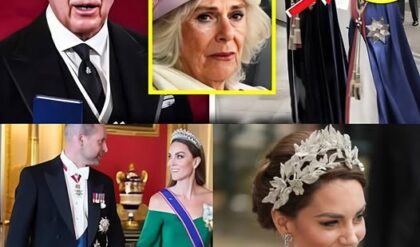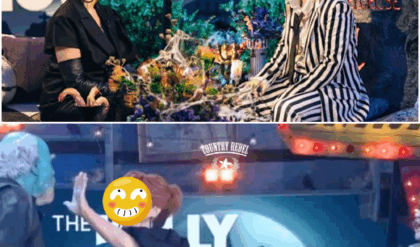In an industry long defined by unattainable ideals of beauty, two iconic actresses, Pamela Anderson and Jodie Foster, are emerging as powerful voices in the fight against toxic beauty standards. Both women, celebrated for their groundbreaking contributions to film and television, have recently taken bold stands to challenge the pervasive culture of perfection that dominates Hollywood. Anderson, known for her ’90s pin-up persona, has embraced a makeup-free aesthetic, while Foster has modeled graceful aging through lifestyle choices rather than cosmetic interventions. Their actions, amplified by their platforms and supported by advocates like wellness author Andi Lew, signal a growing movement to redefine beauty on authentic, inclusive terms. This article explores their efforts, the cultural context of their rebellion, and the broader implications for women in and beyond the entertainment industry.
Pamela Anderson’s Makeup-Free Revolution
Pamela Anderson, once synonymous with the glamorous, heavily made-up image of Baywatch’s C.J. Parker, has undergone a remarkable transformation in recent years. Since 2023, the 57-year-old actress and activist has made headlines for her decision to forgo makeup on the red carpet, a move she describes as both liberating and rebellious. In a June 2025 interview with Harper’s Bazaar UK, Anderson articulated her motivations: “I think that with AI technology and filters, people are becoming kind of boring-looking. I want to challenge beauty norms.” Her makeup-free appearances at events like the 2025 Met Gala, the EE BAFTA Film Awards, and the Screen Actors Guild Awards have sparked widespread praise, with fans and commentators hailing her as a trailblazer for natural beauty.
Anderson’s journey to this point has been complex. In the 1990s, her image as a Playboy model and television star was defined by voluminous blonde hair, bold makeup, and a hyper-feminized aesthetic. Yet, in recent years, she has consciously distanced herself from this persona, opting for a “clean girl” aesthetic that prioritizes minimalism and authenticity. “At some point you have to say, ‘This is all I’ve got.’ Surrender to it. And it’s real happiness,” she told Harper’s Bazaar UK. Her decision to remove breast implants and launch her skincare line, Sonsie Skin, further underscores her commitment to embracing her natural self.
Anderson’s actions are not merely personal; they are a direct challenge to the societal pressures that equate a woman’s worth with her appearance. In a Daily Mail interview, she questioned the double standards in beauty expectations, asking, “Why can’t I [go makeup-free]? Men do it all the time.” Her defiance of these norms has resonated widely, particularly in an era where AI filters and photo-editing apps homogenize appearances, creating what Anderson calls a “boring-looking” standard of beauty. Her role in upcoming films like The Naked Gun (set for release in August 2025) has also seen her selectively return to a softer version of her glamorous look, but on her own terms, blending nostalgia with authenticity.
Jodie Foster’s Graceful Aging and Authentic Presence
Jodie Foster, a two-time Academy Award winner, has long been admired for her talent and integrity. At 62, she represents a different facet of the fight against toxic beauty standards: the rejection of surgical enhancements in favor of aging naturally. In her book Treasured Chest, wellness author Andi Lew cites Foster as a model for women, noting that she “ages gracefully through lifestyle practices, not surgery.” Foster’s approach, rooted in healthy living and self-acceptance, contrasts sharply with the industry’s obsession with youth and perfection.
Foster’s career, spanning over five decades, has been marked by her refusal to conform to Hollywood’s expectations. From her breakout role in Taxi Driver (1976) to her directorial work on Vie Privée (2025), she has prioritized substance over superficiality. Her recent appearances, such as at the 2025 Berlinale and in True Detective: Night Country, showcase a woman comfortable in her skin, with minimal reliance on cosmetic enhancements. Foster’s choice to embrace her natural appearance—complete with the lines and wisdom of age—sends a powerful message: beauty is not confined to youth.
Foster’s influence extends beyond her on-screen presence. As a director and producer, she has championed stories that celebrate complex, authentic female characters, challenging the industry’s tendency to reduce women to their looks. Her advocacy for women in film, coupled with her personal commitment to aging naturally, aligns her with Anderson in their shared mission to redefine beauty standards. Jamie Lee Curtis, another vocal supporter of authentic representation, praised Foster and Anderson in a 2025 TODAY.com interview, saying, “Any time we can see women step up and out and into the light of their truth, and do it with grace and humor and love and beauty, that’s a message that translates.”
The Cultural Context: A Toxic Beauty Landscape
The efforts of Anderson and Foster come at a critical moment. The beauty industry, fueled by social media, AI technology, and a relentless pursuit of perfection, has created unprecedented pressure on women to conform to unrealistic ideals. Filters and photo-editing apps, as Anderson noted, have homogenized appearances, while cosmetic procedures like Botox and fillers have become normalized, even expected, in Hollywood. This culture of perfection is particularly toxic for women, who face disproportionate scrutiny over their appearance compared to their male counterparts.
The online backlash against Anderson’s makeup-free Met Gala appearance in 2025 illustrates the depth of this toxicity. Comments like “Why are people blowing smoke up her a**? Clearly she looks like s**t” reflect a societal discomfort with women aging or deviating from conventional beauty standards. Such criticism reveals a broader issue: the expectation that women must remain perpetually youthful and glamorous to retain relevance. Foster, too, has faced scrutiny for her natural appearance, yet both women have responded with resilience, using their platforms to advocate for change.
Wellness author Andi Lew’s Treasured Chest frames Anderson and Foster as part of a larger movement. Lew argues that the beauty industry’s obsession with perfection harms women’s mental and physical health, perpetuating a cycle of comparison and dissatisfaction. By highlighting Anderson’s makeup-free stance and Foster’s natural aging, Lew calls for a shift toward valuing individuality over conformity. Other celebrities, like Justine Bateman, who wrote Face to challenge aging stigma, have joined this push, creating a collective voice against toxic standards.
The Broader Implications for Hollywood and Beyond
The actions of Anderson and Foster have far-reaching implications, both within Hollywood and in society at large. In an industry where women are often judged by their appearance before their talent, their defiance of beauty norms challenges casting directors, producers, and audiences to rethink what constitutes value. Anderson’s makeup-free red carpet appearances, for instance, have prompted discussions about authenticity in celebrity culture, while Foster’s natural aging has inspired women to embrace their own journeys without shame.
Their influence is amplified by their visibility. Anderson’s Baywatch fame and Foster’s Oscar-winning legacy give them platforms to reach millions, making their messages accessible and relatable. Younger actresses, like Lily James, who portrayed Anderson in Pam & Tommy (2022), have expressed admiration for their courage, noting the importance of authentic representation in an industry that often exploits women’s images.
Beyond Hollywood, Anderson and Foster’s actions resonate with women navigating everyday pressures to conform. The rise of social media has intensified these pressures, with filters and curated images creating unattainable standards. By rejecting these tools, Anderson and Foster offer a counter-narrative: beauty is diverse, personal, and evolving. Their advocacy aligns with broader feminist movements that seek to dismantle systems—whether in media, beauty, or workplace culture—that diminish women’s worth based on appearance.
Challenges and Resistance
Despite their progress, Anderson and Foster face significant resistance. The beauty industry, valued at over $500 billion globally, thrives on perpetuating insecurity, and Hollywood’s reliance on youthful, polished images reinforces this cycle. Online trolling, as seen in reactions to Anderson’s Met Gala photos, reflects a cultural resistance to change, particularly among those who view aging or natural beauty as a diminishment of value. Foster, too, has navigated an industry that often sidelines older women, yet her continued success as a director and actress proves that talent and authenticity can prevail.
Moreover, the movement against toxic beauty standards is not without its complexities. Anderson’s occasional return to glamorous looks for roles like The Naked Gun has sparked debate about consistency, with some critics arguing that selective glamour undermines her message. However, Anderson counters that her choices reflect personal freedom, not obligation, emphasizing that authenticity means embracing all facets of one’s identity.
A Call to Action
Pamela Anderson and Jodie Foster are not just challenging toxic beauty standards; they are redefining what it means to be a woman in the public eye. Anderson’s makeup-free rebellion and Foster’s embrace of natural aging are acts of courage that resonate far beyond the red carpet. Supported by advocates like Andi Lew and peers like Jamie Lee Curtis, they are part of a growing chorus demanding a more inclusive, authentic definition of beauty.
Their efforts invite us all to question the standards we accept and the pressures we impose on ourselves and others. As Anderson told Harper’s Bazaar UK, “I never see somebody and think, ‘I want to look like that.’ I just want to see who I am.” Foster’s quiet resilience echoes this sentiment, proving that beauty lies in living authentically, at any age. Together, they are paving the way for a future where women are celebrated for their truth, not their conformity.





